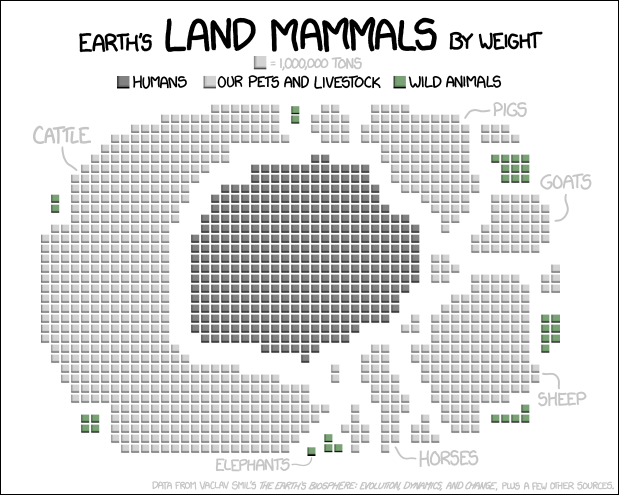southernhybrid
Contributor
I'm gifting a long article that explains how humans are taking up so much of the rest of the planet's animal inhabitants, that it's causing species to lose their habitats and in many cases become extinct or become threatened with extinction.
https://www.nytimes.com/interactive...Bjn4QaHssLHIaDAsvyibLkEr9E-OaA&smid=share-url
https://www.nytimes.com/interactive...Bjn4QaHssLHIaDAsvyibLkEr9E-OaA&smid=share-url
The groups of animals you just scrolled through aren’t the only species that have lost a third or more of their global habitat. They’re just some of the mammals, birds, amphibians and reptiles researchers can currently track. Most live in tropical forests.
“If the forest disappears, they will disappear,” said Walter Jetz, a professor of biodiversity science at Yale University who leads Map of Life, a platform that combines satellite imaging with ecological data to determine how species ranges are changing around the world. Map of Life shared data with The New York Times.
Biodiversity, or all the variety of life on the planet — including plants, invertebrates and ocean species — is declining at rates unprecedented in human history, according to the leading intergovernmental scientific panel on the subject. The group’s projections suggest that a million species are threatened with extinction, many within decades.
Nations are meeting in Montreal to try to chart a different path. Delayed two years because of the pandemic, delegations are working to land a new, 10-year agreement to tackle biodiversity loss under a United Nations treaty called the Convention on Biological Diversity.
“With our bottomless appetite for unchecked and unequal economic growth, humanity has become a weapon of mass extinction,” said António Guterres, the United Nations secretary general, in his opening remarks on Tuesday in Montreal.
The last global biodiversity agreement failed to meet a single target at the global level, according to the Convention on Biological Diversity itself, and wildlife populations continue to plummet.

